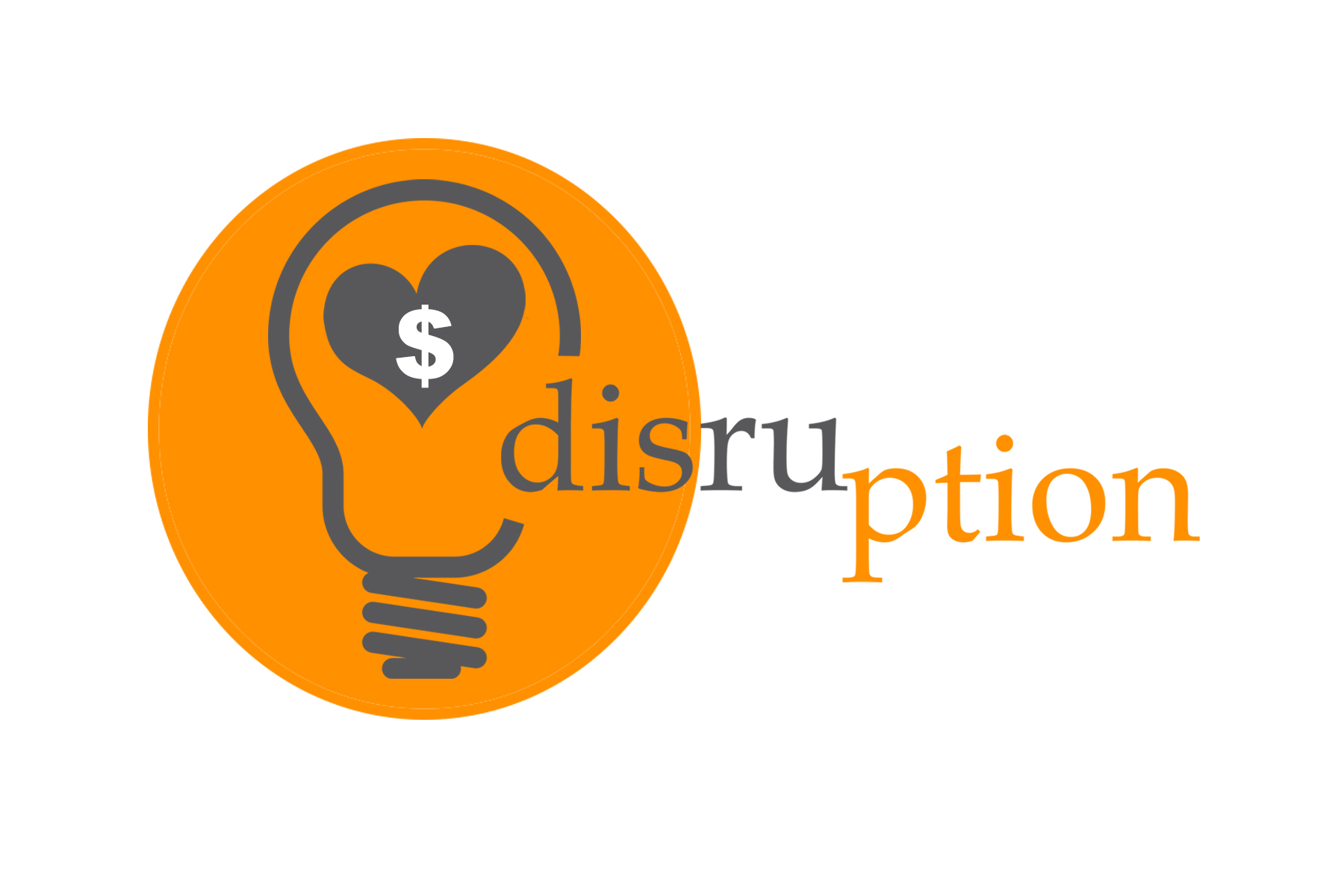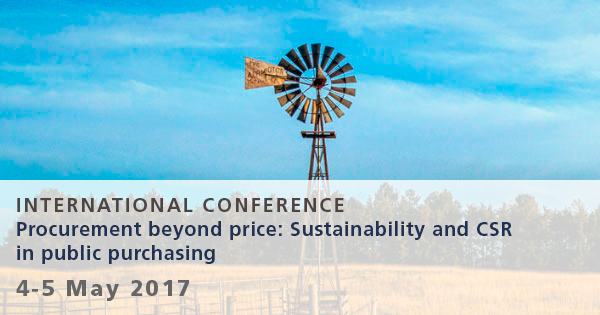
af Karim Buus Drif | apr 29, 2017 | Bestyrelsen
Generalforsamlingen der i første omgang var sat til Torsdag d. 15/6 2017 falder oveni Folkemødet. Bestyrelsen har loddet folkestemningen blandt foreningens stadig voksende gruppe af frivillige ildsjæle og har besluttet at skubbe Generalforsamlingen til efter somerferien
Fra d. 1/5 2017 har du mulighed for at melde dig ind i CSR Forum for blot 500 Kr. pr. 12 mdr. og på den måde få ret til at støtte og styrke den demokratiske proces i vores allesammens CSR Forum.
Meld dig ind her
Folkeoplysning:
Kan det utålmodige medlem ikke vente til generalforssamlingen efter sommerferien, men ønsker indflydelse og dermed impulsivt ønsker, at indkalde til ekstraordinær generalforsamling, kan guidelines herfor, læses i foreningens vedtægter her.
Læs mere om CSR Forums organisering her

af Karim Buus Drif | apr 25, 2017 | Tania Ellis
Disruption er forbundet med ny teknologi og digitalisering som skaber virksomheder med innovative forretningsmodeller og stort vækstpotentiale. Ofte er det IT iværksættere som udvikler en idé der bliver til en international virksomhed. Enten vokser de sig store på egen hånd, eller ved at samarbejde med allerede etablerede virksomheder. Eksemplerne er mange, fra Netflix til Air BnB, Spotify og Skype.
Men nu kan udfordringer relateret til klima og andre globale ubalancer også være en kilde til disruption med mindst ligeså store potentialer. Det er i alle fald en af konklusionerne i rapporten Better Business, Better World (Business & Sustainable Development Comission, januar 2017). Og for at kunne udnytte disse forretningsmuligheder, kræver det at både store virksomheder og organisationer arbejder sammen med grønne og sociale iværksættere.
Selv om det er en af konklusionerne i rapporten, er det ikke noget der er nyt. Mange store virksomheder i Danmark og resten af verden har allerede fået øjnene op for den ny type iværksættervirksomheder der har vokset frem de seneste år. Ved første øjekast virker de måske ikke kommercielt interessante, fordi de fokuserer på områder, der ikke har et indlysende forretningspotentiale. Men det er de. Kom og hør hvem de er, og hvordan de har udviklet deres forretningsmodeller.
Den 2. maj sætter Tania Ellis og The Social Business Company fokus på globale trends og cases inden for bæredygtig disruption og corporate social entrepreneurship, og hvordan store virksomheder i samarbejde med iværksættere skaber nye forretningsmodeller der bidrager til at løse globale udfordringer.
Link til mini-konference:
http://www.taniaellis.com/club-event/miniconference-disruptive-sustainability-corporate-social-entrepreneurship/
Interviewet af:
Tanja Bisgaard, Novitas Innovation

af Karim Buus Drif | apr 20, 2017 | Eva C. Knutsen
In continuance with our meetings to connect our passionate members, we are excited to test some new formats to ensure that we support and catalyze the discussion of how to transform CSR and Sustainability knowledge into competitive companies and business models.
In establishing a starting point and a forum for sustainable conversations among our network, we have invited Stéphane Pisani from Laval University (Canada, Québec) to join us at the upcoming Dialog & Netværk meetings, targeted consultancy firms within the area of CSR and Sustainability consultants.
Stéphane is currently based on CBS and he is researching the concept of identity of CSR and interviewing consultants to explore the links between the identity tensions of the consultants and their institutional context in Denmark. His goal is also to better understand how the roles and identities of consultants are defined in the process of ‘commodification’ of social responsibility within organizations.
Stéphane will present himself and his research project at the upcoming Dialog & Netværk meetings.
First time is Wednesday April 26th. At the meetings you will get the opportunity to discuss with Stéphane one-on-one. In that way you will be able to take advantage of Stéphane’s insights into the field, as well as get some unique exposure of yourself and your consultancy firm. Stéphane will ultimately publish a research paper with his findings. The consultancy firms involved in the research will get the opportunity of being covered here in our blog as well.
PROFILE:
Stéphane moved to Denmark in September, and since then he has immersed himself in Danish culture, including being well on his way to learning Danish! He has a unique background encompassing a wide range of experiences, including working for the French Army and Eurocorps, being an entrepreneur and working with strategic planning and logistics, as well as ecotourism.
To read more about Stéphane (in French)

af Karim Buus Drif | apr 11, 2017 | Marta Andrecka
The global value of public procurement spending is enormous. Just the OECD countries alone spend a total of €1000 billion per year. In the EU over 250 000 public authorities each year spend around 14-19% of GDP on the purchase of services, works and supplies. In many sectors such as energy, transport, waste management, social protection and the provision of health or education services, public authorities are the principal buyers. Within specific industry sectors, the sheer scale of public procurement spending and their supplier selection decisions, can literally create and shape a market and impact lives of citizens across the country at large
Over the last decade procurement experienced wide spread modernisation across the globe, both including local and international levels. With the revamp of UN Model law on Public Procurement, introduction of new Public Procurement Directives (Europe) as well as introduction of several policy developments (Sustainable Public Procurement Program, UN Principles on Business and Human Rights) procurement understanding has changed. It is not anymore understood as a process of solely buying for a cheapest price but something beyond that. Procurement gain recognition as a part of strategic development of organisation – whether that is private or public one – as well as a tool that allows delivering aspects beyond savings.
These include ensuring that governments and private companies do business responsibly, take a leadership position in community and consider Corporate Social Responsibility (CSR) issues relevant to their own business operations (including those of its supply network), and are transparent about their actions in these areas.
Governments’ actions in procurement have potential to streamlining socially responsible trade by not only mandating the minimum standards for business performance but also facilitating through incentivizing companies to engage with the CSR agenda or to drive social improvements. However, there are several challenges when considering social criteria in procurement.
On 4-5 May 2017 Centre for Enterprise Liability (CEVIA) will host a two-day international conference at the Faculty of Law of the University of Copenhagen, where researchers from the CSR Legal Research Network, the SMART project and other renowned specialists discuss timely developments relating to the field of procurement, sustainability and CSR.
We would like you to join us for a fruitful two days of sharing knowledge, best practices and experiences.
Please register till 20th April here:
http://www.conferencemanager.dk/procurementbeyondprice
Further info:
http://jura.ku.dk/virksomhedsansvar/english/calendar/procurement-beyond-price/
Martas Profil:
Marta is Assistant professor at Centre for Enterprise Liability, Faculty of Law, University of Copenhagen.
Marta’s interest of research: Public Procurement Law, Government Contracts, EU Law and Sustainability/CSR.

af Karim Buus Drif | apr 7, 2017 | Robert Strand
Metrics matter. They drive activities at organizations. Purposeful metrics have to do with the idea that the highest level metrics for an organization should be tied to its purpose. A session about “purposeful metrics” struck me most at the recent Aspen Institute’s Making Purpose Work Conference held in San Francisco.
The Aspen Institute Business & Society Program invited me to be an “Aspen Scholar” alongside the likes of Professor Tom Donaldson of Wharton and Professor Lynn Stout of Cornell. Given that the participants in this conference were primarily practitioners, as a designated ‘scholar’ I feel the obligation to tie the conversations about the concept of purposeful metrics to insights afforded by classical scholars of centuries past.
Before you click over to your Facebook account, please give another paragraph or two a chance.
I took part in a session with a VP of a major company who spoke about the “massive failure” of a product launch at his company. This VP had been part of a team that developed a new product. Production had been located in a low-cost developing region that faced a number of social challenges. The VP shared with us that great care was taken by the company to positively impact the local communities in which the product was produced. Many of us who took part in this conversation were deeply impressed by the commitment of the company to go beyond what would be expected. The VP went on to say that this story of positive social impact was shared with consumers who could scan a QR code on the product to read about the positive impact.
Yet the product was deemed a huge failure at the company. Why? Only 16 people had scanned the QR code.
There is a good news / bad news story here.
The good news: Companies are increasingly attempting to understand and measure the outcomes of their social impact initiatives. This represents a shift away from the days where sporadic “feel good” initiatives were the norm at companies that were often disconnected from core operations and where outcomes were unknown. Said another way, good intentions do not necessarily lead to good results.
The bad news: In a dash to measure social impact, we may not get it right. Some things that are connected to purpose are not often easily measureable. Here we often enter into the realm of the intangible. To paraphrase a justifiably well-worn quote: Just because you can count something, does not mean it is what counts.And just as important: Just because you cannot count something, does not mean that it does not count.
In the era of Big Data, this good news/bad news story is increasingly important to keep in mind because dashboards of sophisticated-looking metrics are increasingly easy to assemble. We can count things we never had before – from QR code scans and website clicks to Facebook likes. It is possible that the product launch by the aforementioned VP really was a massive failure. But it struck me that QR code scans may not have been a meaningful metric for assessing the success of this program. By way of analogy, the number of my Facebook friends is probably not a useful measure of the richness of my life.
So now comes the part where I draw from scholars of years past. The American philosopher John Dewey taught us that, over time, means have a peculiar way of becoming the perceived end. Metrics are a means deployed to achieve an end. But without a deliberate re-visitation of the originally identified end – i.e. the purpose – the metrics can unintentionally become the end in themselves. The German sociologist Max Weber offered a similar warning. Weber described how calculations to drive efficiencies can take on a life of their own and ultimately come to eclipse the purpose for which the calculations were made in the first place.
Developing metrics that are closely tied with purpose can be difficult. Furthermore, as Dewey and Weber warned, even metrics that are initially tied closely to purpose can take on a life of their own and gradually become disconnected from their original purpose. Purpose can become lost over time.
In my experience, this represents an important role for the likes of a Chief Sustainability Officer or Chief Officer of Corporate Social Responsibility: to provoke conversations about the company’s metrics and how they do (or do not) connect to purpose.
With this in mind, let me revisit Max Weber for a moment. Weber warned that in a large organizational structure, such as a multinational corporation, the individuals who comprise the organization run the risk of becoming atomized participants. Weber famously described this as “a parceling out of the soul,” by which he meant the tendency of individuals in large organizations to lose their connection to the purpose of the organization as a whole.
The Chief Sustainability Officer can play a critically important role in combatting this danger. Not every company needs to have a Chief Sustainability Officer. But I have found that such a position can serve an important role at large corporations where employees are at grave risk of feeling like little cogs in a big machine. The Chief Sustainability Officer can help to ensure that a forum exists for employees to have discussions about purpose and how the organization’s metrics do/do not connect to purpose. Without someone like the Chief Sustainability Officer to create such forum, even a well-intentioned company can become disconnected from its purpose.
This post originally appeared on the Center for Responsible Business blog at the University of California-Berkeley, Haas School of Business.
Roberts profil:
Robert is Executive Director of the Center for Responsible Business and Lecturer with the University of California- Berkeley, Haas School of Business. He is also Assistant Professor of Leadership & Sustainability with the Copenhagen Business School. Follow him on Twitter @robertgstrand.




